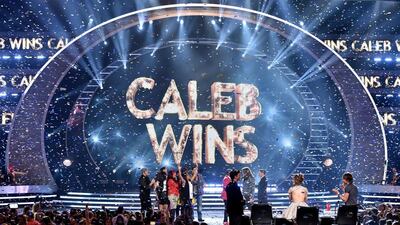I once asked a newspaper publisher why the front section of his paper was filled with bad news.
“Don’t people prefer to read good news?” I asked. “Can’t you put the bad news in a specially-marked ‘Bad News’ section, for people to read when they’re emotionally prepared to face the facts about the world’s condition?”
He laughed at me. “In the news business,” he said, “we have a motto: ‘If it bleeds, it leads.’ Meaning, bad news sells.”
That may be true for the news business – I’m not qualified to judge – but in the entertainment business, we live by a different code. When people put down the newspaper or turn away from the television news channel, what they’re more often than not looking for is a little escapism. Television shows and movies can offer what newspapers can’t – happy endings.
Which is why it’s so odd, especially these days, to flip through the channels of pretty much any satellite package or skim through the television show listings and discover how many large media companies – most of them managed by intelligent, well-informed people – that are nevertheless trying to make money by enticing audiences with dark and depressing programmes.
There’s more than enough dark and depressing content on the front page of the newspaper, and audiences – at least in the United States – are expressing their bad-news-fatigue by changing the channel.
Once promising, though grimly dark, shows like Hannibal have been cancelled, and the recently popular genre of the “anti-hero” – shows that depicted such complicated and morally compromised leading roles as Tony Soprano or Breaking Bad’s Walter White – now seem overly heavy and leaden.
It isn’t just a case of audiences demanding sunnier themes. It’s also clear that they’re tired of ceaseless controversy in general.
When former Olympic gold medallist Bruce Jenner announced that he was undergoing a major life – and gender – transformation, it was the kind of lurid and tabloid-ready news that garnered big headlines and seemed tailor-made for an eventual reality television series.
Which, no surprise, it was. Jenner’s series, I Am Cait, premièred a few weeks ago to a large audience, only to collapse in the ratings in the subsequent weeks. Call it “issue exhaustion” or “controversy ennui” or whatever you like, but it’s clear that when audiences get home after a long day at work and sift through their large and growing entertainment choices, what they’re looking for is a ticket out of the here and the now.
That’s what sporting events provide, or comedies, or light adventure shows. That’s what Dynasty delivered to audiences many years ago – a glimpse into the world of a powerful oil-rich family. People don’t need Hollywood to show them what the world is like – they already know, all too well, what it’s like. What people want from Hollywood is a little time off.
The movie business seems to have figured this out. The biggest movies this summer – especially one of the most successful movies of the year, Tom Cruise’s Mission Impossible 5: Rogue Nation – have delivered high-quality, edge-of-the-seat escapist fare, a perfect antidote to a summer of front-page bad news.
Scan the top international films – titles such as Minions and Ant-Man and Inside Out – and it’s clear that when audiences are offered an opportunity to sit in the dark and lose themselves for two hours, keeping the bad news at bay, they’ll take it.
Television viewers of today, I’m pretty sure, are looking for the same thing. One reason reality talent shows are so popular – shows like American Idol and Britain’s Got Talent – is because everyone loves an underdog story. The competition isn’t rigged, but the competitors’ stories are edited carefully and presented to the viewer in a deliberately structured way so that the “good guys” win and the “underdog” triumphs. The outcomes of these kinds of shows are almost always deeply satisfying and uplifting, unlike, say, the scripted programming that appears elsewhere.
The problem, though, is that scripts are written by writers and writers tend, on the whole, to be pretentious. There is something irresistible about writing a dark and cynical series with an anti-hero at the centre, because that seems, on the whole, to be more “arty” and clever.
Arty and clever, unfortunately, rarely pay the rent.
This isn’t a new insight, of course. Hollywood was built by smart businessmen who knew the value of a happy ending and a good musical number.
The biggest growth years of the entertainment industry occurred, not coincidentally, during the worst economic years in American history.
Dazed and numbed by the Great Depression of the 1930s, moviegoers flocked to the cinemas to watch elaborate dance routines and romantic comedies about rich people. For gritty realism, they left the cinema and went home.
Or read the newspaper, where the bad news is always on the front page. And if you miss today’s front page, you can be sure there will be some more bad news, made fresh the next day.
Rob Long is a writer and producer based in Hollywood
On Twitter: @rcbl

